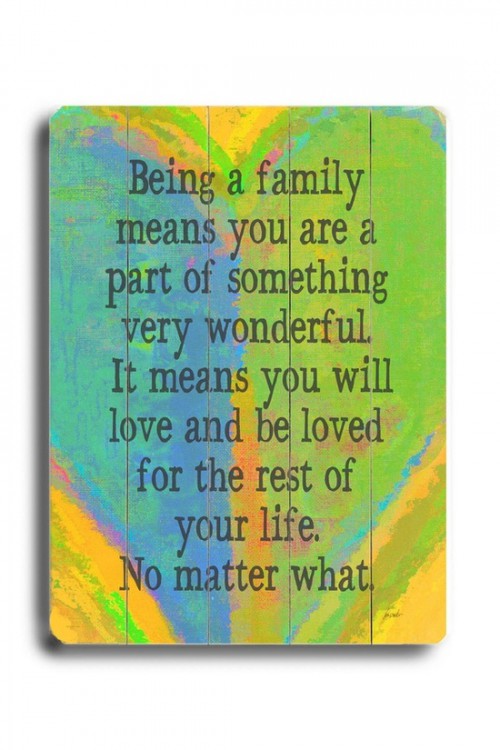I have never liked the term broken home.
Maybe it’s because, according to those who use it, I come from one, and the words hurt. What child should be made to believe the place they come from is considered broken? My wish is that we have language that honors everyone’s home, no matter how many parents are present, and no matter their married or divorced status. I think “home” is enough—no need to qualify it as broken, repaired, or having always been in one lovely piece.
When I was little and living in a home that was still in one lovely piece, I pondered this term and what it meant. As little kids tend to do, I took it literally, and the words evoked a tiny wooden house, falling apart in disrepair. If there had been a picket fence, the paint had now peeled and there were holes where the posts had fallen down. Truly broken.
Because of the upbringing I had, where I was frequently informed of the strife of others, I didn’t ask the obvious question: well, if it’s broken, why doesn’t it just get fixed? I understood the term broken home carried a lot of weight. These were dilapidated, falling apart homes that the parents couldn’t fix. Not just broken, but broken beyond repair.
Then it happened to me.
My home broke and I didn’t want anyone to know it. From the outside, it looked mostly the same. On the inside, it was heavy with its brokenness: the broken dream of a family with two parents and two kids, and for me, the broken thing I had always known as truth: that my parents loved each other. I no longer knew what was true about family and I was newly burdened with what felt like a curse: living in a broken home.
I wonder what it would have been like for me if, after my parents’ divorce, I didn’t inherit that broken home. A changed home, yes. A grieving home for a time, yes. But a broken-beyond-repair home? That should never be bestowed upon any of us, especially a child.
For the past five years I have worked with kids who were legally severed from their parents—kids in the foster care system. They originally came from homes that someone somewhere would call the most broken—not just with divorce, but drug use, abuse, neglect, and unstable transience. I found that what these kids need and deserve is no different than what we all need when speaking of the places we come from, or the homes we have created—honor.
To me, honor need not mean celebrating or condoning. It means witnessing and respecting. These days, I tend to get all riled up when someone says a child came from a broken home. On a good day, I’ll ask, “What is a broken home?”
On another day, I’ll say, “Me, too. I come from a broken home. I’ve created a broken home. My daughters are growing up in a broken home. Let me tell you something about it. There is no dad that lives there. There never has been. The kitchen is pink and every pet but the hamster is a female. The hamster gets the title, man of the house. I don’t have a doormat that says Welcome to Our Broken Home because to me it is not broken at all; it is the best little brick home, full of life and love, no more broken than the little brick houses scattering the street with the married people inside.”
We are all broken, some of us a little and some of us a lot. We all are somewhere on our own journeys of brokenness and repair. I never wanted that broken home of my childhood, but I came to love the two homes that were born from the brokenness. I never wanted my own divorce, but I have come to be deeply grateful for the home that was created in its wake. I think many of us have this love and gratitude for the places we come from, even with their deep flaws.
After my divorce I always imagined myself as a chick emerging from an egg—wobbly and disoriented, but ready to walk into the new world. Maybe that is the beauty of the broken home—like an egg, cracked into a bunch of pieces, but also like an egg— a new life emerges.
Love elephant and want to go steady?
Sign up for our (curated) daily and weekly newsletters!
Editorial Assistant: Andrea Charpentier/Editor: Renee Picard
Photos: Elephant Journal Archives







Read 2 comments and reply